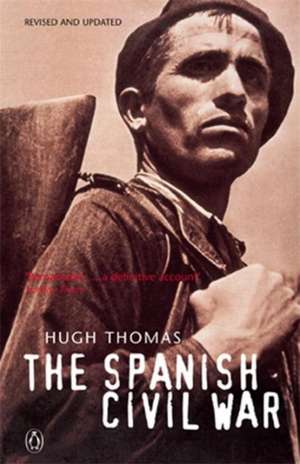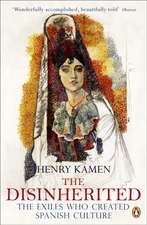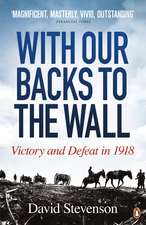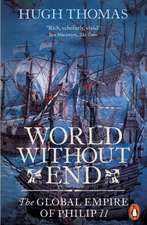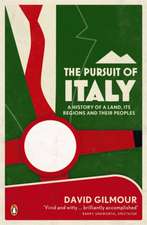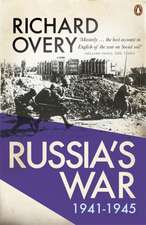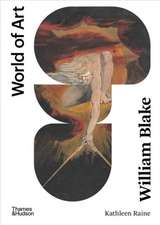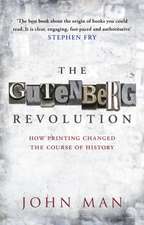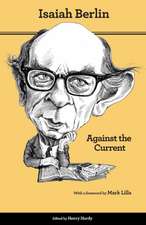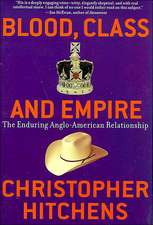The Spanish Civil War
Autor Hugh Thomasen Limba Engleză Paperback – 2 apr 2003
What was it that roused left-wing sympathizers from all over the world to fight against Franco between 1936 and 1939? Why did the British and US governments refuse to intervene? And why did the Republican cause collapse so violently? Now revised and updated, Hugh Thomas's classic account presents the most objective and unbiased analysis of a passionate struggle where fascism and democracy, communism and Catholicism were at stake - and which was as much an international war as a Spanish one.
'Remarkable ... a definitive account'
Sunday Times
'A prodigy of a book ... about the most heroic and pitiful story of the twentieth century'
Michael Foot
'His masterwork'
Independent
'A full, vivid and deeply serious treatment of a great subject'
The New York Times Book Review
Hugh Thomasis the author of, among other books,The Spanish Civil War(1962), which won the Somerset Maugham Award,Cuba: The Pursuit of Freedom(1971),An Unfinished History of the World(1979), and the first volume of his Spanish Empire trilogy,Rivers of Gold(2003).
| Toate formatele și edițiile | Preț | Express |
|---|---|---|
| Paperback (2) | 122.89 lei 22-33 zile | +51.75 lei 6-12 zile |
| Penguin Books – 2 apr 2003 | 122.89 lei 22-33 zile | +51.75 lei 6-12 zile |
| Modern Library – 30 noi 2001 | 169.74 lei 3-5 săpt. |
Preț: 122.89 lei
Preț vechi: 143.01 lei
-14% Nou
Puncte Express: 184
Preț estimativ în valută:
23.52€ • 24.60$ • 19.53£
23.52€ • 24.60$ • 19.53£
Carte disponibilă
Livrare economică 14-25 martie
Livrare express 26 februarie-04 martie pentru 61.74 lei
Preluare comenzi: 021 569.72.76
Specificații
ISBN-13: 9780141011615
ISBN-10: 0141011610
Pagini: 1136
Ilustrații: maps
Dimensiuni: 129 x 198 x 49 mm
Greutate: 0.77 kg
Editura: Penguin Books
Colecția Penguin
Locul publicării:London, United Kingdom
ISBN-10: 0141011610
Pagini: 1136
Ilustrații: maps
Dimensiuni: 129 x 198 x 49 mm
Greutate: 0.77 kg
Editura: Penguin Books
Colecția Penguin
Locul publicării:London, United Kingdom
Notă biografică
HUGH
THOMAS
(Lord
Thomas
of
Swynnerton)
is
the
author
of
a
number
of
highly
successful
histories,
most
famously
CUBA,
THE
SLAVE
TRADE
and
THE
SPANISH
CIVIL
WAR.
Extras
The Origins of the War
'Every Spaniard's ideal is to carry a statutory letter with a single provision, brief but imperious: "This Spaniard is entitled to do whatever he feels like doing".'
-Angel Ganivet
Prologue
The Cortes, the parliament of Spain, stands halfway up the hill leading from the Prado to the Puerta del Sol.1 Bronze lions cast from guns captured in the Moroccan Wars guard its doors. At the summit of its Corinthian columns, Justice hopefully embraces Labour on a granite pediment. On 16 June 1936 this classical building was the centre of all Spain.
Over five years had then passed since King Alfonso XIII had abandoned the Spanish throne-to avoid, as he put it (perhaps exaggerating his importance in the minds of his people), the disaster of a civil war. These had been five years of parliamentary activity. Before the King left, there had been eight years, from 1923 till 1931, when, most of the time under the amiable military dictator General Primo de Rivera, the Cortes had been deserted. Now, in June 1936, constitutional life in Spain seemed likely to be destroyed.
An anxious group of middle-class liberals were gathered on the blue government bench at the front of the semi-circular debating chamber. Honest and intelligent men, they and their followers hated violence. They admired the pleasing, democratic ways of Britain, France and America. In both this hatred and this admiration, they were, however, unusual among Spaniards of their time, isolated even among the four hundred other deputies sitting or standing around and above them, as best they could, in the crowded debating chamber.1 Yet the men of this government had a fanaticism of their own hardly typical of the practical-minded countries which they desired to reproduce in Spain.
Observe, for example, the Prime Minister, Santiago Casares Quiroga.2 A rich man from Galicia in the north-west of Spain, he had spent much of his life calling for home rule for his own poor province, although the only advantage the gallegos3 could have gained from this would have been a better rail service. Although Casares seemed to act according to liberal, Wilsonian principles formulated beyond the Pyrenees, no one could have been more Spanish. He was a passionate liberal when the rise of organized labour caused liberalism to seem as anachronistic as feudalism. Yet since there had not been in Spain a successful middle-class revolution on the model of that in France in 1789, one can hardly blame Casares and his friends for their attitude. In the early years of the republic, in 1931 and 1932, the eyes of Casares Quiroga (then minister of the interior) had appeared, to both friends and enemies, to burn in his small head like those of St Just. Now they were marked by a strange, ironic optimism, only explicable as a symptom of the tuberculosis from which he was already suffering.
The nature of the crisis in Spain was described on 16 June 1936 by Gil Robles, the sleek, fat and almost bald, but still young, leader of the Spanish Catholic party, the CEDA.4 His party was conservative, and Catholic, and it included those who wanted to restore a monarchy, as well as those who desired a christian democratic republic. Some in the CEDA, particularly in the youth movement (JAP),1 were almost fascists; and some admired Dollfuss's corporate Austria. Gil Robles was eloquent and able, but hesitant and devious. He was as hated by monarchists and fascists as he was by socialists. Yet he had created the first middle-class Spanish mass party. Now he recalled that the government had had, since the elections in February, exceptional powers, including press censorship and the suspension of constitutional guarantees. Nevertheless, during those four months, 160 churches, he said, had been burned to the ground, there had been 269 political murders, and 1,287 assaults of varying seriousness. Sixty-nine political centres had been wrecked, there had been 113 general strikes and 228 partial strikes, while 10 newspaper offices had been sacked. 'Let us not deceive ourselves!' concluded Gil Robles. 'A country can live under a monarchy or a republic, with a parliamentary or a presidential system, under communism or fascism! But it cannot live in anarchy. Now, alas, Spain is in anarchy. And we are today present at the funeral of democracy!' Angry cries broke out from all over the chamber, some in agreement, some in dissent.2
The conditions of the country and the régime were as grave as Gil Robles suggested, even if the figures seemed suspiciously precise, and even if some of the disorder caused was the work of the Right: the building of El Ideal, a right-wing newspaper in Granada, had been apparently burned by young men of the upper class and there was other provocation.3 In addition to the violence, men at both extremes of the political spectrum were being drilled for fighting, as military formations. 'All out on Sunday' was an instruction by a score of political leaders. Neither Casares Quiroga nor Gil Robles, representing groups which had been prominent in the history of the Second Republic,4 could control events. Both, indeed, were sustained in the Cortes by the votes of deputies whose aims were different from their own. The elections of the preceding February had been contested by two alliances: the Popular Front, and the National Front. Besides the liberals like Casares, the former had consisted of the large socialist party, the small communist party, and other working-class groups. Behind the socialist party there was the powerful trade union, the UGT (Unión General de Trabajadores),1 one of the best organized workers' movements in Europe. The National Front consisted not only of the CEDA, but also of monarchists, agrarians, representing the large landowners of the south and centre, and some other right-wing parties. It was the political front for all the forces of old Spain, the army, as well as of the church and the bourgeoisie.
The Popular Front had gained the day in February 1936 though, by the Spanish electoral law, their majority of seats in the Cortes was greater than their total of votes cast would have entitled them under a strict system of proportional representation. Not all the parties which had shared in the electoral alliance took part in the government. Indeed the government was composed of liberal republicans,2 while it depended for its majority upon the working-class parties. This is never a recipe for strong government. It was peculiarly unhappy in Spain
in 1936, when the latter were already in a perpetual state of revolutionary effervescence; and, apart from those who cooperated with the democratic system so far as to contest seats in the Cortes, there
remained, outside, the great army of nearly two million anarchist workers, chiefly in Andalusia or Barcelona, organized in the CNT (Confederación Nacional de Trabajo),3 and directed by a secret society, the FAI (Federación Anarquista Ibérica).4 This huge, self-absorbed and passionate movement, already throbbing like a great city at war, despised the progressive government of Casares Quiroga as much as it had in the past hated the governments of the Right. Then there was the army. Who in that early summer in Madrid had not heard rumours of plots by generals, to establish 'order' or even a military dictatorship? Indeed, after Gil Robles had finished speaking in the Cortes, a socialist deputy declared that the churches were being burned by agents provocateurs to justify just such a rebellion.
The socialists were divided. Some were reformists. Some were intellectual fabians. A few were revolutionaries. Some were dazzled by the flattery of communists, some were aghast at the recent rise of communist influence. But all could agree with the accusations levelled at the Right by their spokesmen.
When their cheering had died down, the monarchist leader, Calvo Sotelo, proudly rose. Like Casares Quiroga, he was a native of Galicia; but also, like Casares, he lacked the dispassion for which that green region is celebrated. Had he gipsy blood? Was he as strong a man as his handsome face suggested? A Spanish Roosevelt, or a cleverer, Spanish Mussolini? All people knew for certain was that he was ruthless, eloquent, and able. On leaving the University of Saragossa in 1915 he had been private secretary to Maura,1 the high-minded conservative Prime Minister of Alfonso XIII. Shortly afterwards, Maura made him civil governor2 of Valencia at twenty-five. General Primo de Rivera gave him the ministry of finance at thirty-two. Prudently spending the first years of the republic in Paris to escape condemnation for the financial mistakes of the dictatorship, he returned to Spain only when the republic had begun to founder. Elected to the Cortes as a monarchist, he believed above all in his own star. The eclipse of Gil Robles had been his gain. Already experienced and at the height of his powers, he spoke as if the future of Spain were in his hands.3
The disorder in Spain, he said, in a speech punctuated by interruptions, was the result of the democratic constitution of 1931. No viable state, he believed, could be built upon that constitution.
Against this sterile state [he went on] I am proposing the integrated state, which will bring economic justice, and which will say with due authority: 'no more strikes, no more lock-outs, no more usury, no more capitalist abuses, no more starvation wages, no more political salaries gained by a happy accident,1 no more anarchic liberty, no more criminal conspiracies against full production'. The national production will be for the benefit of all classes, all parties, all interests. This state many may call fascist; if this be indeed the fascist state, then I, who believe in it, proudly declare myself a fascist!
When the ensuing storm of derision and applause had died down, he went on:
When I hear talk of the danger from monarchist generals, I smile a little, for I do not believe (and you will grant me a certain [he paused] moral authority for this assertion), that there is, in the Spanish army, a single soldier disposed to rise on behalf of a monarchy and against the republic. If there were such a person, he would be mad-I speak with all sincerity, mad indeed, as would be any soldier who, before eternity, would not be ready to rise on behalf of Spain, and against anarchy-if that should be necessary.
Calvo Sotelo had already secretly committed himself to support a military rising if it should come.2 The Speaker of the Cortes, the swarthy Diego Martinez Barrio, requested Calvo Sotelo not to make such announcements, since his intentions could be misunderstood. The Speaker was an experienced politician of obscure birth from Seville, who had been once briefly Prime Minister. Now he was leader of the Republican Union party. Open, sympathetic, but vain, he had hitherto successfully represented in his political life the idea of compromise. This was so rare in Spanish affairs that his enemies attributed his rise to his occult power as a freemason of the thirty-third grade.
With deliberation, the Prime Minister answered Calvo Sotelo:
After Your Excellency's3 words, the responsibility for whatever happens will be yours. You come here today with two aims only: to condemn parliament as impotent, and to inflame the army, trying to detach units from their loyalty to the republic. But I give my assurance. Parliament will work. The army will do its duty.
The most famous Spanish communist, Dolores Ibarruri, known as 'La Pasionaria' (the passion flower), spoke next. Always dressed in black, with a grave but fanatical face which caused the masses who listened to her speeches to suppose her a revolutionary saint, she was now forty. Years before, as a girl, she had been a devout Catholic. In those days she had wandered from village to village in the Basque provinces, selling (according to one account) sardines from a great tray which she bore on her head.1 But Dolores la Sardinera married a miner from Asturias, one of the founders of the socialist party in northern Spain. Personal tragedies accumulated-three of her daughters died in infancy-against a harsh background of struggle.2 She transferred her devotion from the Virgin of Begoña to the prophet of the British Museum Reading Room. The Right spread rumours that she had once cut a priest's throat with her own teeth. She was to become a great orator, and was already an artist in words and timing. But her personality was less strong than it publicly appeared and her enemies on the Trotskyite Left explained the success of her oratory as attributable to secret Svengalis sent from Moscow. She was nevertheless a simple, direct, and powerful woman who had been to prison many times-three times under the republic-and twice to Moscow too. In the Cortes, she stood out as the only striking leader in the small if growing Spanish communist party. There were only seventeen communist deputies, all 'unknown and ignorant' in the view of Indalecio Prieto, a socialist moderate, and, outside, the party had 130,000 members at most.3
More important, La Pasionaria also represented the idea of revolutionary womanhood, a strong force in a country which had given the Virgin a special place in religion. As long ago as 1909, women in Barcelona had been the most eloquent, daring and violent among strikers, church-burners and looters of nunneries.4
When La Pasionaria spoke in the Cortes on 16 June, she dismissed the fascists of Spain as gangsters. But was there not a 'fascist international', directed from Berlin and Rome, which had already designated a day of reckoning in Spain?
A Catalan businessman, Juan Ventosa, next expressed his alarm at the apparent optimism of the Prime Minister. Ventosa, twice finance minister under the King, had been in politics for many years and was the political lieutenant of Francisco Cambó, the great financier of Barcelona and one of the richest men in Spain. It was said that Cambó's wealth had already been transferred abroad. The question was, was it wiser, from the point of view of the flight of capital, to seem hopeful or concerned? The government could never decide. Joaquín Maurín, leader of the rebel communist party known as the POUM,1 announced next that there existed already a pre-fascist situation in the country. Then Calvo Sotelo rose once more to answer the Prime Minister:
My shoulders are broad [he said]. I do not shun, indeed I accept with pleasure, the responsibility for what I do . . . I recall the answer given by St Dominic of Silos2 to a Spanish king: 'Sire, my life you may take from me, but more you cannot take'. Is it not, indeed, better to perish gloriously, than to live in contempt? But I, in turn, bid the Prime Minister to reckon up his responsibilities; if not before God, since he is an atheist, at least before his conscience, inasmuch as he is a man of honour.
He spoke then of the roles of Kerensky and Karolyi in delivering Russia and Hungary over to communist revolution:
'Every Spaniard's ideal is to carry a statutory letter with a single provision, brief but imperious: "This Spaniard is entitled to do whatever he feels like doing".'
-Angel Ganivet
Prologue
The Cortes, the parliament of Spain, stands halfway up the hill leading from the Prado to the Puerta del Sol.1 Bronze lions cast from guns captured in the Moroccan Wars guard its doors. At the summit of its Corinthian columns, Justice hopefully embraces Labour on a granite pediment. On 16 June 1936 this classical building was the centre of all Spain.
Over five years had then passed since King Alfonso XIII had abandoned the Spanish throne-to avoid, as he put it (perhaps exaggerating his importance in the minds of his people), the disaster of a civil war. These had been five years of parliamentary activity. Before the King left, there had been eight years, from 1923 till 1931, when, most of the time under the amiable military dictator General Primo de Rivera, the Cortes had been deserted. Now, in June 1936, constitutional life in Spain seemed likely to be destroyed.
An anxious group of middle-class liberals were gathered on the blue government bench at the front of the semi-circular debating chamber. Honest and intelligent men, they and their followers hated violence. They admired the pleasing, democratic ways of Britain, France and America. In both this hatred and this admiration, they were, however, unusual among Spaniards of their time, isolated even among the four hundred other deputies sitting or standing around and above them, as best they could, in the crowded debating chamber.1 Yet the men of this government had a fanaticism of their own hardly typical of the practical-minded countries which they desired to reproduce in Spain.
Observe, for example, the Prime Minister, Santiago Casares Quiroga.2 A rich man from Galicia in the north-west of Spain, he had spent much of his life calling for home rule for his own poor province, although the only advantage the gallegos3 could have gained from this would have been a better rail service. Although Casares seemed to act according to liberal, Wilsonian principles formulated beyond the Pyrenees, no one could have been more Spanish. He was a passionate liberal when the rise of organized labour caused liberalism to seem as anachronistic as feudalism. Yet since there had not been in Spain a successful middle-class revolution on the model of that in France in 1789, one can hardly blame Casares and his friends for their attitude. In the early years of the republic, in 1931 and 1932, the eyes of Casares Quiroga (then minister of the interior) had appeared, to both friends and enemies, to burn in his small head like those of St Just. Now they were marked by a strange, ironic optimism, only explicable as a symptom of the tuberculosis from which he was already suffering.
The nature of the crisis in Spain was described on 16 June 1936 by Gil Robles, the sleek, fat and almost bald, but still young, leader of the Spanish Catholic party, the CEDA.4 His party was conservative, and Catholic, and it included those who wanted to restore a monarchy, as well as those who desired a christian democratic republic. Some in the CEDA, particularly in the youth movement (JAP),1 were almost fascists; and some admired Dollfuss's corporate Austria. Gil Robles was eloquent and able, but hesitant and devious. He was as hated by monarchists and fascists as he was by socialists. Yet he had created the first middle-class Spanish mass party. Now he recalled that the government had had, since the elections in February, exceptional powers, including press censorship and the suspension of constitutional guarantees. Nevertheless, during those four months, 160 churches, he said, had been burned to the ground, there had been 269 political murders, and 1,287 assaults of varying seriousness. Sixty-nine political centres had been wrecked, there had been 113 general strikes and 228 partial strikes, while 10 newspaper offices had been sacked. 'Let us not deceive ourselves!' concluded Gil Robles. 'A country can live under a monarchy or a republic, with a parliamentary or a presidential system, under communism or fascism! But it cannot live in anarchy. Now, alas, Spain is in anarchy. And we are today present at the funeral of democracy!' Angry cries broke out from all over the chamber, some in agreement, some in dissent.2
The conditions of the country and the régime were as grave as Gil Robles suggested, even if the figures seemed suspiciously precise, and even if some of the disorder caused was the work of the Right: the building of El Ideal, a right-wing newspaper in Granada, had been apparently burned by young men of the upper class and there was other provocation.3 In addition to the violence, men at both extremes of the political spectrum were being drilled for fighting, as military formations. 'All out on Sunday' was an instruction by a score of political leaders. Neither Casares Quiroga nor Gil Robles, representing groups which had been prominent in the history of the Second Republic,4 could control events. Both, indeed, were sustained in the Cortes by the votes of deputies whose aims were different from their own. The elections of the preceding February had been contested by two alliances: the Popular Front, and the National Front. Besides the liberals like Casares, the former had consisted of the large socialist party, the small communist party, and other working-class groups. Behind the socialist party there was the powerful trade union, the UGT (Unión General de Trabajadores),1 one of the best organized workers' movements in Europe. The National Front consisted not only of the CEDA, but also of monarchists, agrarians, representing the large landowners of the south and centre, and some other right-wing parties. It was the political front for all the forces of old Spain, the army, as well as of the church and the bourgeoisie.
The Popular Front had gained the day in February 1936 though, by the Spanish electoral law, their majority of seats in the Cortes was greater than their total of votes cast would have entitled them under a strict system of proportional representation. Not all the parties which had shared in the electoral alliance took part in the government. Indeed the government was composed of liberal republicans,2 while it depended for its majority upon the working-class parties. This is never a recipe for strong government. It was peculiarly unhappy in Spain
in 1936, when the latter were already in a perpetual state of revolutionary effervescence; and, apart from those who cooperated with the democratic system so far as to contest seats in the Cortes, there
remained, outside, the great army of nearly two million anarchist workers, chiefly in Andalusia or Barcelona, organized in the CNT (Confederación Nacional de Trabajo),3 and directed by a secret society, the FAI (Federación Anarquista Ibérica).4 This huge, self-absorbed and passionate movement, already throbbing like a great city at war, despised the progressive government of Casares Quiroga as much as it had in the past hated the governments of the Right. Then there was the army. Who in that early summer in Madrid had not heard rumours of plots by generals, to establish 'order' or even a military dictatorship? Indeed, after Gil Robles had finished speaking in the Cortes, a socialist deputy declared that the churches were being burned by agents provocateurs to justify just such a rebellion.
The socialists were divided. Some were reformists. Some were intellectual fabians. A few were revolutionaries. Some were dazzled by the flattery of communists, some were aghast at the recent rise of communist influence. But all could agree with the accusations levelled at the Right by their spokesmen.
When their cheering had died down, the monarchist leader, Calvo Sotelo, proudly rose. Like Casares Quiroga, he was a native of Galicia; but also, like Casares, he lacked the dispassion for which that green region is celebrated. Had he gipsy blood? Was he as strong a man as his handsome face suggested? A Spanish Roosevelt, or a cleverer, Spanish Mussolini? All people knew for certain was that he was ruthless, eloquent, and able. On leaving the University of Saragossa in 1915 he had been private secretary to Maura,1 the high-minded conservative Prime Minister of Alfonso XIII. Shortly afterwards, Maura made him civil governor2 of Valencia at twenty-five. General Primo de Rivera gave him the ministry of finance at thirty-two. Prudently spending the first years of the republic in Paris to escape condemnation for the financial mistakes of the dictatorship, he returned to Spain only when the republic had begun to founder. Elected to the Cortes as a monarchist, he believed above all in his own star. The eclipse of Gil Robles had been his gain. Already experienced and at the height of his powers, he spoke as if the future of Spain were in his hands.3
The disorder in Spain, he said, in a speech punctuated by interruptions, was the result of the democratic constitution of 1931. No viable state, he believed, could be built upon that constitution.
Against this sterile state [he went on] I am proposing the integrated state, which will bring economic justice, and which will say with due authority: 'no more strikes, no more lock-outs, no more usury, no more capitalist abuses, no more starvation wages, no more political salaries gained by a happy accident,1 no more anarchic liberty, no more criminal conspiracies against full production'. The national production will be for the benefit of all classes, all parties, all interests. This state many may call fascist; if this be indeed the fascist state, then I, who believe in it, proudly declare myself a fascist!
When the ensuing storm of derision and applause had died down, he went on:
When I hear talk of the danger from monarchist generals, I smile a little, for I do not believe (and you will grant me a certain [he paused] moral authority for this assertion), that there is, in the Spanish army, a single soldier disposed to rise on behalf of a monarchy and against the republic. If there were such a person, he would be mad-I speak with all sincerity, mad indeed, as would be any soldier who, before eternity, would not be ready to rise on behalf of Spain, and against anarchy-if that should be necessary.
Calvo Sotelo had already secretly committed himself to support a military rising if it should come.2 The Speaker of the Cortes, the swarthy Diego Martinez Barrio, requested Calvo Sotelo not to make such announcements, since his intentions could be misunderstood. The Speaker was an experienced politician of obscure birth from Seville, who had been once briefly Prime Minister. Now he was leader of the Republican Union party. Open, sympathetic, but vain, he had hitherto successfully represented in his political life the idea of compromise. This was so rare in Spanish affairs that his enemies attributed his rise to his occult power as a freemason of the thirty-third grade.
With deliberation, the Prime Minister answered Calvo Sotelo:
After Your Excellency's3 words, the responsibility for whatever happens will be yours. You come here today with two aims only: to condemn parliament as impotent, and to inflame the army, trying to detach units from their loyalty to the republic. But I give my assurance. Parliament will work. The army will do its duty.
The most famous Spanish communist, Dolores Ibarruri, known as 'La Pasionaria' (the passion flower), spoke next. Always dressed in black, with a grave but fanatical face which caused the masses who listened to her speeches to suppose her a revolutionary saint, she was now forty. Years before, as a girl, she had been a devout Catholic. In those days she had wandered from village to village in the Basque provinces, selling (according to one account) sardines from a great tray which she bore on her head.1 But Dolores la Sardinera married a miner from Asturias, one of the founders of the socialist party in northern Spain. Personal tragedies accumulated-three of her daughters died in infancy-against a harsh background of struggle.2 She transferred her devotion from the Virgin of Begoña to the prophet of the British Museum Reading Room. The Right spread rumours that she had once cut a priest's throat with her own teeth. She was to become a great orator, and was already an artist in words and timing. But her personality was less strong than it publicly appeared and her enemies on the Trotskyite Left explained the success of her oratory as attributable to secret Svengalis sent from Moscow. She was nevertheless a simple, direct, and powerful woman who had been to prison many times-three times under the republic-and twice to Moscow too. In the Cortes, she stood out as the only striking leader in the small if growing Spanish communist party. There were only seventeen communist deputies, all 'unknown and ignorant' in the view of Indalecio Prieto, a socialist moderate, and, outside, the party had 130,000 members at most.3
More important, La Pasionaria also represented the idea of revolutionary womanhood, a strong force in a country which had given the Virgin a special place in religion. As long ago as 1909, women in Barcelona had been the most eloquent, daring and violent among strikers, church-burners and looters of nunneries.4
When La Pasionaria spoke in the Cortes on 16 June, she dismissed the fascists of Spain as gangsters. But was there not a 'fascist international', directed from Berlin and Rome, which had already designated a day of reckoning in Spain?
A Catalan businessman, Juan Ventosa, next expressed his alarm at the apparent optimism of the Prime Minister. Ventosa, twice finance minister under the King, had been in politics for many years and was the political lieutenant of Francisco Cambó, the great financier of Barcelona and one of the richest men in Spain. It was said that Cambó's wealth had already been transferred abroad. The question was, was it wiser, from the point of view of the flight of capital, to seem hopeful or concerned? The government could never decide. Joaquín Maurín, leader of the rebel communist party known as the POUM,1 announced next that there existed already a pre-fascist situation in the country. Then Calvo Sotelo rose once more to answer the Prime Minister:
My shoulders are broad [he said]. I do not shun, indeed I accept with pleasure, the responsibility for what I do . . . I recall the answer given by St Dominic of Silos2 to a Spanish king: 'Sire, my life you may take from me, but more you cannot take'. Is it not, indeed, better to perish gloriously, than to live in contempt? But I, in turn, bid the Prime Minister to reckon up his responsibilities; if not before God, since he is an atheist, at least before his conscience, inasmuch as he is a man of honour.
He spoke then of the roles of Kerensky and Karolyi in delivering Russia and Hungary over to communist revolution:
